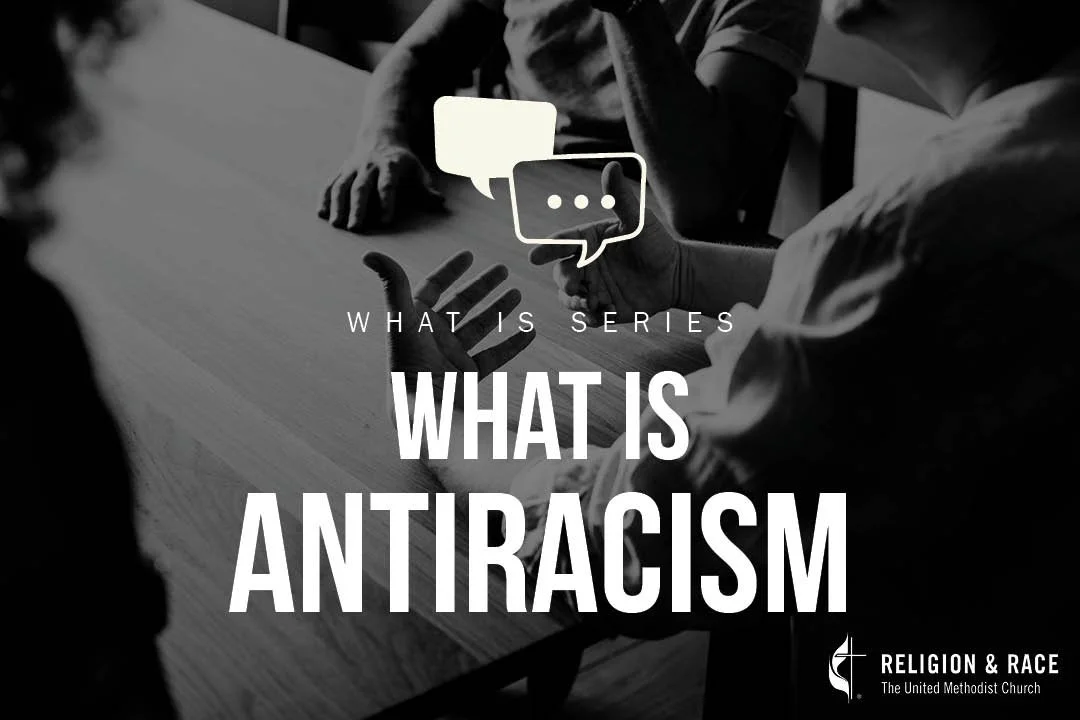What Is Antiracism?
As humanity’s understanding and discussion of the concepts of race, racism, and antiracism have evolved over generations, so have the words and phrases we use as we continue the work of obeying God and advancing racial justice.
In this “What Is?” series, the General Commission on Religion and Race offers this compilation of concise definitions, examples, and Biblical/theological foundations to create common vocabulary for Christians as we engage in anti-racism work.
Our hope, as you engage this series, is that the learning equips you to move into deeper waters in anti-racism work in your respective context.
Visit the series homepage for more information on other anti-racism resources.
Definition:
Anti-Racism is the interrupting and/or dismantling of racism. The interruption and/or dismantling must be tangible, meaningful, and powerful according to Black Indigenous People of Color (BIPOC), as they are the direct targets of oppression can know what works and what does not.
Furthermore, Ibram X. Kendi, author of How to Be an Antiracist states “We can knowingly strive to be an antiracist. Like fighting an addiction, being an antiracist requires persistent self-awareness, constant self-criticism, and regular self-examination.” (Kendi, p. 23) Thus, it is continued action of interrupting and dismantling racism, wherever and whenever it comes up.
Example(s) of Antiracism:
Trustee and/or Hospitality teams make intentional improvements to church buildings and grounds with their differently abled, deaf, and immigrant neighbors and congregants in mind.
Providing various language interpreters for an English-speaking business meeting held in the U.S. to create space and give voice to those participating for whom English is not their native language.
Biblical/Spiritual/Theological Framing or References:
Presently, the Church does not have a common theological and biblical understanding of the term antiracism. Throughout the centuries – especially during the 1960s Civil Rights movement in the United States – the Church has implicitly understood antiracism through the simple assertions that, “We are all God’s children,” and that “God is the God of all nations and races.” Several mainline, global Christian entities have interpreted these statements to imply that our faith must include “resisting, rejecting, and renouncing” racism as actions of antiracism. (For example, these exact words are included in the Baptismal Covenant of the United Methodist Church.)
However, these actions have not been and are not enough. If antiracism is “the practice of supporting antiracist policies through action or expression of antiracist ideas that creates racial equity,” then the pursuit of--and institution of--equity must be the fruits of antiracism. Deliberate actions, not just rhetoric, are required for Christians to engage in antiracism and please our God. The writer of the Biblical book of James reminds us, “You do well if you really fulfill the royal law according to the scripture, ‘You shall love your neighbor as yourself.’ But if show partiality, you commit sin and are convicted by the law as transgressors” (James 2:8-9, NRSV).
Reflection Questions:
Examine/research the term “race-neutral.” What does it mean? How is antiracism different from race-neutral policies?
What is the difference between racism and antiracism?
Why are we called to engage antiracism as disciples of Jesus?
What are some ways we can begin to be antiracist right where we are (in our homes, work environments, school, community, world)?
Additional Resources:
“The Difference Between Being ‘Not Racist’ and antiracist’”- TED Talk by Ibram X. Kendi
How to Have a Courageous Conversation: Racism (From United Methodist Discipleship Ministries)
30 Days of Antiracism (From GCORR)
Equity vs. Equality: Understanding the Differences (From GCORR)

